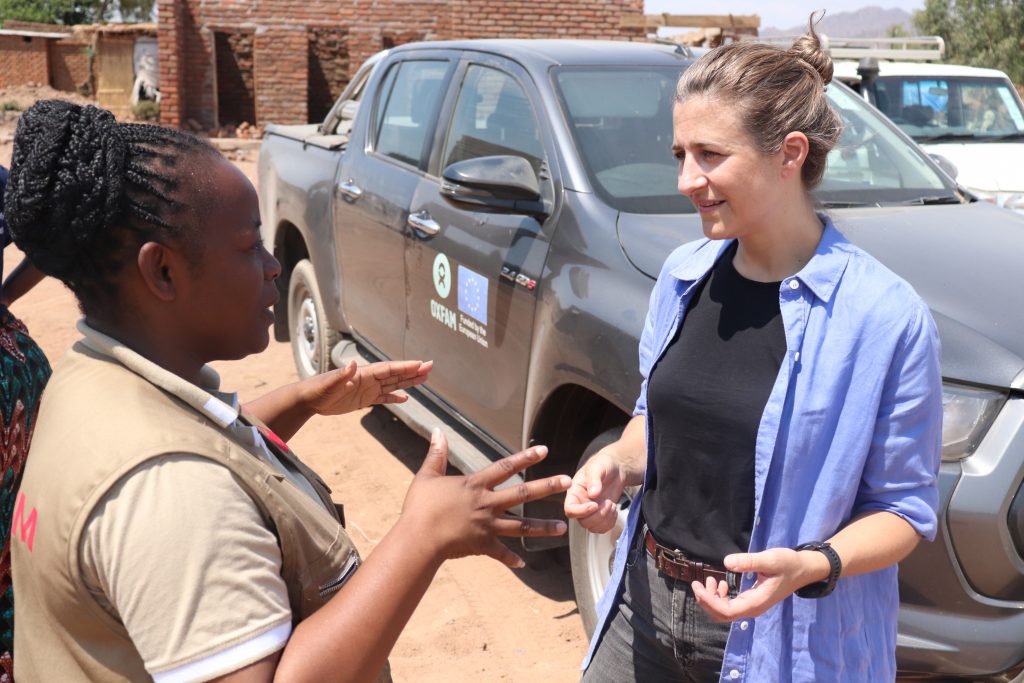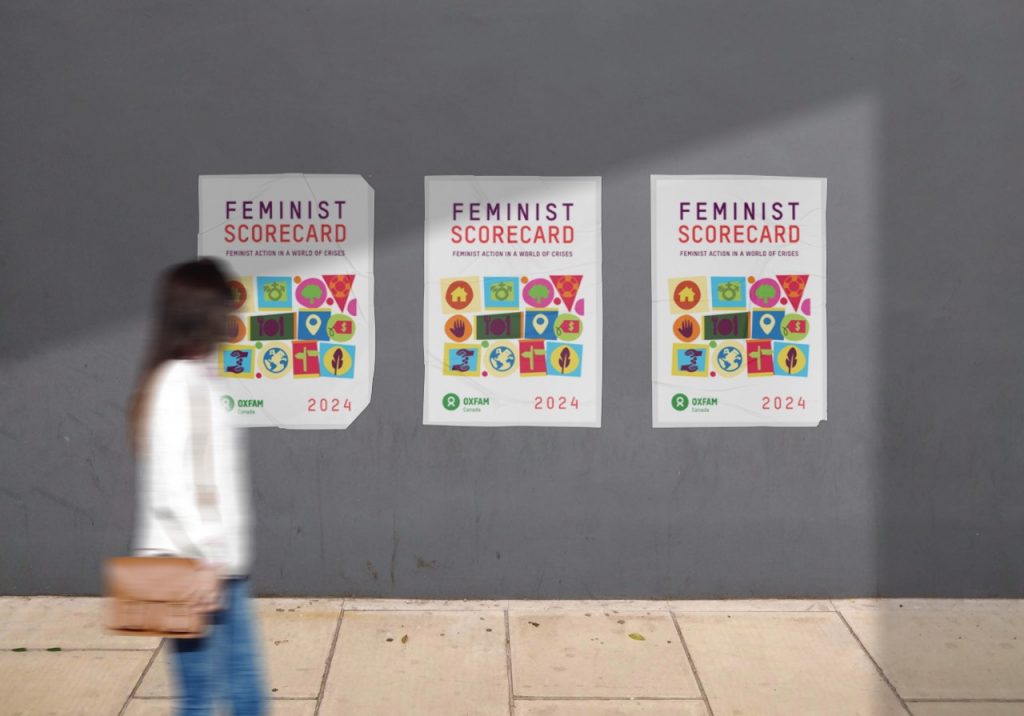Reflections from Iraq, where families are fleeing war and trying to rebuild
And they aren’t alone in facing profound challenges: Countless other families are striving to rebuild their lives and communities after two years of ISIS occupation.
I was there to visit some of Oxfam’s projects, where our staff members, along with our excellent local partners, are making a tremendous positive difference for some of the most vulnerable Iraqis.
For me, one of the most powerful moments involved visiting a school in Oswijah, a village near Mosul, that had been under ISIS control until just a few months ago. Because of the occupation, hundreds of children had been unable to attend classes for two years. We heard tales about the terror of that time—about lost relatives, people used as human shields, families who had fled and returned to find their homes destroyed or booby-trapped. Now, on the edge of a war zone, beside bombed-out houses, with smoke from burning oil wells clouding the horizon and the sound of occasional explosions in the distance, these young Iraqis were finally in school again. The doors had reopened just that week.
The reopening of the school is an important symbol of hope for the village and its children. But most of the teachers have not yet returned. Some never will. There are now just four teachers for 700 children. Oxfam has recruited a team of volunteers to help get things started.
While the Oxfam health promoters and volunteer teachers played games and engaged the children, a tanker delivered water as part of an Oxfam funded emergency program for the surrounding area. And nearby, Oxfam engineers were working closely with the local water department to restore the main pipeline to the district.
Under ISIS, the infrastructure was neglected and cannibalized for parts, leaving many treatment plants and pumping stations lying dormant. We met water department staff members who for years worked loyally without pay, motivated by a sense of civic duty as they tried to maintain the supply. In strong partnership with local authorities, Oxfam is investing in repair and renewal strategies, restoring supplies to thousands of people every week, and working to reinstate control to the community.
Oxfam has been supporting partner-led programs in Iraq for many years. But since 2014, we have been working with families who fled conflict and the communities, retaken from ISIS. While fighting has displaced more than three million people, those who stayed at home are often in as great need as those who fled. Our work has included carefully targeted protection, cash transfer, job creation and small business investment programs for the most vulnerable.
On my visit, I met shopkeepers who were selected by the community who are rebuilding and reopening their small businesses with Oxfam’s support. I met women who previously hadn’t been able to go out to work, who were now painting and plastering over bullet holes, rebuilding schools with pride and confidence.
Most of Oxfam’s work is rightly in the towns and villages that have suffered in the war, as only a small proportion of the millions of people who have been displaced are living in camps. But as more than 70,000 people have recently fled their homes in Mosul, camps in surrounding areas are needed, and Oxfam has been providing water and sanitation services in a number of them.
The Oxfam team is planning programs to make lasting impacts over a number of years. The country team is well led, skilled and highly motivated. It is an impressive and passionate team growing quickly as the fighting has intensified. By December there will be about a hundred staff members, approximately 30 of whom will be international, coming from 17 countries, bringing an amazing range of experience from around the world.
Programming is fairly evenly split between the response around Mosul, where we will extend the work into the city as soon as it is safe to do so, and the recovery work around the country in areas retaken from ISIS over the last two years. The program is already directly benefitting several hundred thousand people and looks well placed to grow.
The depressed oil price and cost of the war are causing huge problems in Iraq, but it is still a middle income country. Our involvement isn’t just about meeting immediate humanitarian needs. In some ways it’s a model program for rebuilding with a focus on the well-being of the most vulnerable and supporting effective and sustainable longer term recovery. For the next few years we have a lot to offer. It is high quality work, badly needed and it’s making a real difference in this fragile nation.
Written by Ray Offenheiser, Executive Director, Oxfam America.

